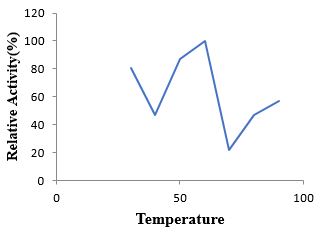Hydrolytic Response of Beta-Amylase to Selected Starches when Adsorptively Immobilized on Agarose Gel
DOI:
https://doi.org/10.54117/ijamb.v3i1.25Keywords:
Immobilization, β-amylase, hydrolysis, activity, selected starchesAbstract
Immobilization has been an effective tool commonly employed to maintain and/or improve the activity of industrially important enzymes and for ease of recovery and re-use. The present study was aimed at evaluating the effect of temperature and pH on immobilized β-amylase, its pH and temperature stability and the effects of different substrates and metal salts on the enzyme. Enzyme activity and protein concentration were also determined before and after immobilization. Immobilization was carried out on agarose gel support using adsorption method. The enzyme had its optimal activity at pH 4.5 and temperature 60 ºC with percentage relative activity of 100% each. The temperature and pH also had effect on the stability of the enzyme. The enzyme was more stable at pH 4.5 and temperature 60 ºC as it gave its optimum activity at these points while it also exhibited some measure of stability at other pH and temperatures. The results of the substrates specificity and effect of metal salts showed that immobilized β-amylase acted better on potato starch compared to other substrates. Also, Fe2+ had the highest inhibitory effect on the enzyme compared to other metal salts while other metals showed non-inhibitory effects.

Downloads
Published
How to Cite
Issue
Section
License
Copyright (c) 2024 Victor N. Enujiugha, Temitope F. A. Abu, Mercy O. Olowolafe, Folayemi J. Isaac-Bamgboye

This work is licensed under a Creative Commons Attribution 4.0 International License.
